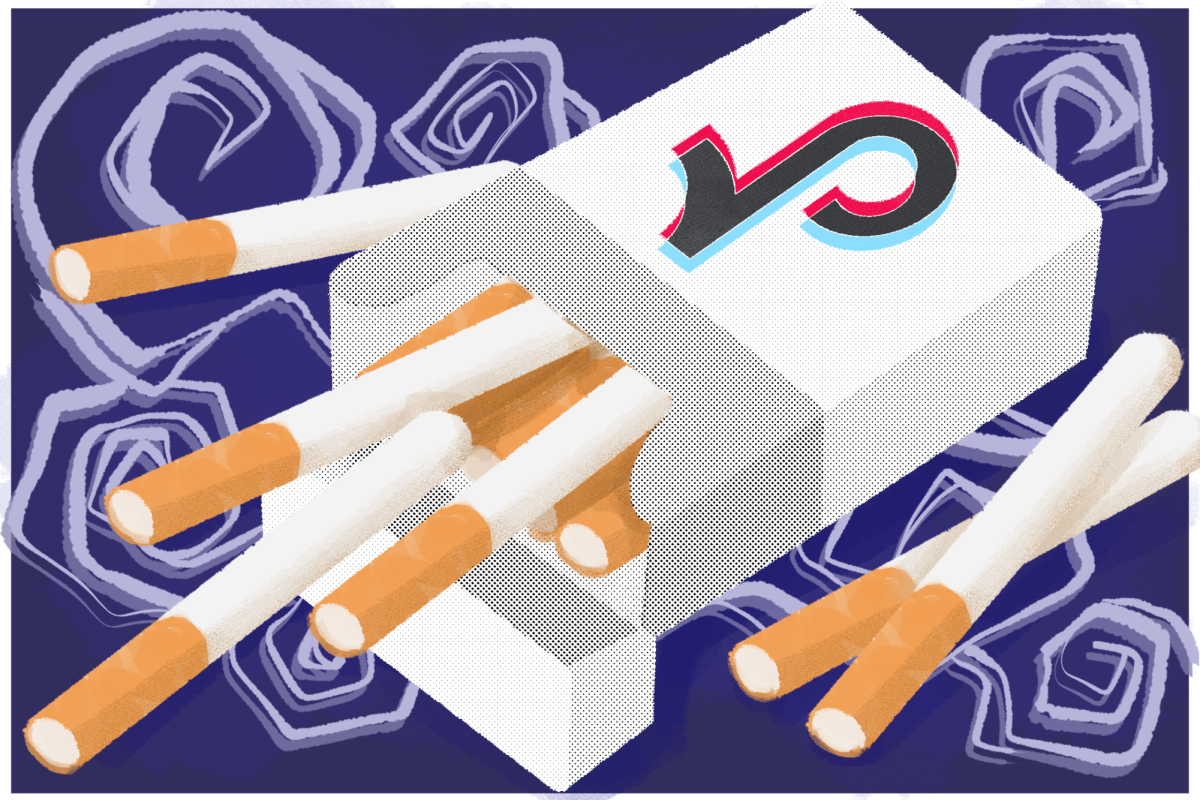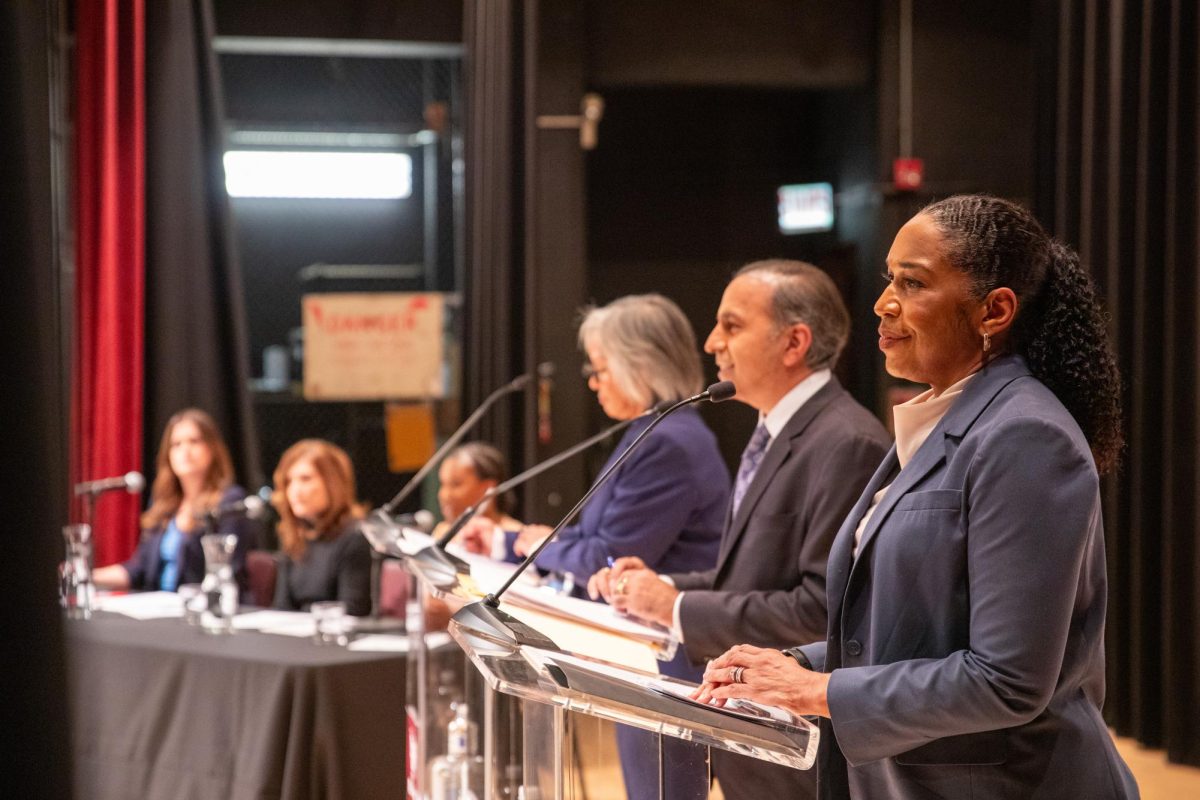Last updated on Nov. 2, 2024 at 01:18 a.m.
Illinois Attorney General Kwame Raoul announced in early October that he’s suing TikTok for harmful business practices, making Illinois the 14th state to do so. This comes after a more than two-year-long investigation into TikTok by a bipartisan coalition of state attorneys general.
Jeremy McClane, professor in Law, explained the lawsuit.
“The Illinois lawsuit is brought under Illinois (Consumer) Fraud and Deceptive Practices Business Act and the Uniform Deceptive Trade Practices Act, which are laws aimed at going after deceptive marketing and business dealings,” McClane said.
McClane added that the specific claim the lawsuit alleges regards TikTok’s addictiveness.
Get The Daily Illini in your inbox!
“(The lawsuit is) saying that TikTok is knowingly trying to get kids addicted, and their claim is that the app is optimized to kind of give, especially younger users, a dopamine hit at certain times in a way that keeps them on the platform,” McClane said.
McClane continued, saying that the TikTok lawsuits were similar to those against big tobacco.
“The biggest example that’s sort of analogous here would be when the state attorneys general sued the tobacco industry in the 1990s, claiming that the companies had kind of lied to consumers about how addictive cigarettes were, and ended up costing the states a bunch of money in terms of healthcare costs for people who got sick from smoking,” McClane said.
Professor Ari Waldman of the University of California, Irvine, shared his views on the issue in an email.
“Young people should not be the basis of a profit-making, data-extractive business model,” Waldman said. “The time has long passed to start holding technology companies accountable for the harms they cause. There is no reason why online social media platforms should be treated any differently than companies that harm people in other areas.”
Some specific complaints regarding TikTok have garnered media attention. Per NPR, an internal report found that TikTok boosted the presence of users their algorithm deemed “beautiful.” This adds to a larger sentiment that TikTok contributes to low self-esteem and body image issues.
According to the Illinois-TikTok lawsuit, unnamed TikTok executives and employees were quoted saying, “It’s better to have young people as an early adopter, especially the teenagers in the U.S.” Another said, “Teenagers in the U.S. are a golden audience … If you look at China … teens are super busy in school studying for tests, so they don’t have the time.”
Vishnu Sriram, sophomore in Engineering, was unaware of a lawsuit occurring.
“I feel like it’s not really that big of a headline anymore, just because it’s been happening so many times, or it’s been brought up so many times, I feel like the news is diluted now,” Sriram said. “People are used to it.”
Sriram did, however, talk about the potential damages of TikTok addiction that he’s personally witnessed.
“I have a friend,” Sriram said. “He ended up scrolling on TikTok a lot, and then he transitioned into becoming chronically online over this summer, and it was a huge issue because, last year, he used to be very studious. This year, he dropped every single technical class he’s taken because he just cannot concentrate on anything. TikTok really makes it hard to just focus in general.”
Jayna Chua, sophomore in Business, echoed a similar sentiment about the potentially harmful content on social media.
“When we have celebrities that have very perfect lives, or even just influencers doing days in the life or what I eat in the day, that can be really harmful, especially for teenage girls in particular,” Chua said. “I know a lot of my friends would do some sort of crazy diet, half joking, but half serious because some influencer online said that it was a good idea.”
Waldman delivered an indictment of the current state of digital privacy laws.
“People should know that privacy laws are inadequate,” Waldman said. “(Privacy laws) essentially allow companies to do whatever they want in the name of profit. Our systems are failing adults AND children. And conservatives and neoliberals want to keep it that way.”
McClane explained that the allegations against TikTok haven’t been proven in a court of law.
“What should be clear is that (TikTok) is alleged to be violating these rights; they haven’t been shown in court that they have,” McClane said.
Alex Haurek, a TikTok spokesperson, said in an email statement to The Daily Illini that the company doesn’t agree with the claims in the lawsuit, many of which they find inaccurate.
“We’ve endeavored to work with the Attorneys General for over two years, and it is incredibly disappointing they have taken this step rather than work with us on constructive solutions to industrywide challenges,” Haurek said.
You can read the lawsuit in its entirety here.







